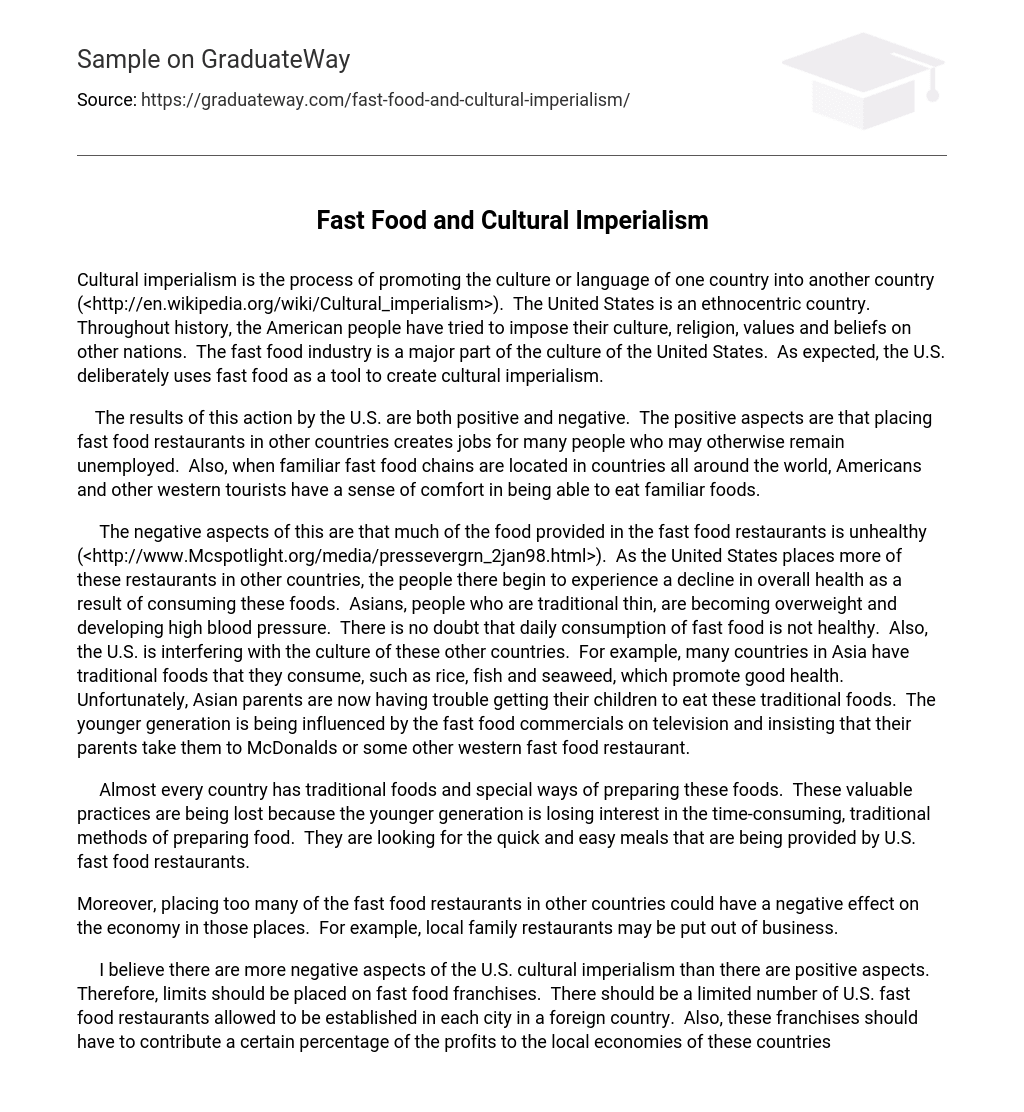Cultural imperialism is the process of promoting the culture or language of one country into another country (<http://en.wikipedia.org/wiki/Cultural_imperialism>). The United States is an ethnocentric country. Throughout history, the American people have tried to impose their culture, religion, values and beliefs on other nations. The fast food industry is a major part of the culture of the United States. As expected, the U.S. deliberately uses fast food as a tool to create cultural imperialism.
The results of this action by the U.S. are both positive and negative. The positive aspects are that placing fast food restaurants in other countries creates jobs for many people who may otherwise remain unemployed. Also, when familiar fast food chains are located in countries all around the world, Americans and other western tourists have a sense of comfort in being able to eat familiar foods.
The negative aspects of this are that much of the food provided in the fast food restaurants is unhealthy (<http://www.Mcspotlight.org/media/pressevergrn_2jan98.html>). As the United States places more of these restaurants in other countries, the people there begin to experience a decline in overall health as a result of consuming these foods. Asians, people who are traditional thin, are becoming overweight and developing high blood pressure. There is no doubt that daily consumption of fast food is not healthy. Also, the U.S. is interfering with the culture of these other countries. For example, many countries in Asia have traditional foods that they consume, such as rice, fish and seaweed, which promote good health. Unfortunately, Asian parents are now having trouble getting their children to eat these traditional foods. The younger generation is being influenced by the fast food commercials on television and insisting that their parents take them to McDonalds or some other western fast food restaurant.
Almost every country has traditional foods and special ways of preparing these foods. These valuable practices are being lost because the younger generation is losing interest in the time-consuming, traditional methods of preparing food. They are looking for the quick and easy meals that are being provided by U.S. fast food restaurants.
Moreover, placing too many of the fast food restaurants in other countries could have a negative effect on the economy in those places. For example, local family restaurants may be put out of business.
I believe there are more negative aspects of the U.S. cultural imperialism than there are positive aspects. Therefore, limits should be placed on fast food franchises. There should be a limited number of U.S. fast food restaurants allowed to be established in each city in a foreign country. Also, these franchises should have to contribute a certain percentage of the profits to the local economies of these countries.
Works Cited
Wikipedia Website Article. 5 May 2007. Cultural Imperialism. http://en.wikipedia.org/wiki/Cultural_imperialism
Wilson, John
http://www.Mcspotlight.org/media/pressevergrn_2jan98.html
The Fat-Filled Fast Food Fry Wars. January 2, 1998.





